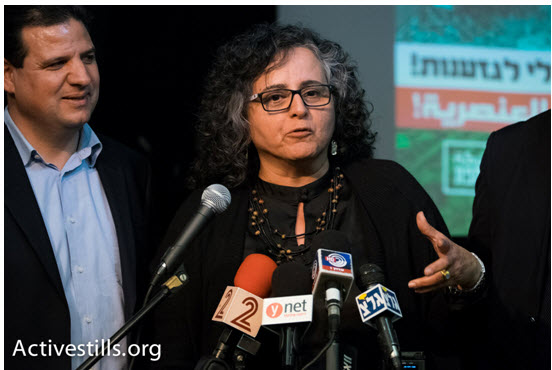Health Minister Yaakov Litzman of the ultra-Orthodox United Torah Judaism party was set to spearhead opposition to a bill encouraging the appointment of female Islamic judges, on Wednesday December 9 on the grounds that it would set a legal precedent for the election of female rabbinical judges. A spokesman for Litzman confirmed that the ultra-Orthodox party was planning to utilize its veto on religion-state matters, granted as part of coalition agreements, to topple the proposed legislation.
The bill, proposed by Hadash-Joint List MK Aida Touma-Sliman (a leading member of Communist Party of Israel and chairwoman of the Committee on the Status of Women and Gender Equality in the Knesset), Meretz MK Issawi Frej and Zionist Union MK Zouheir Bahloul, would require those appointing qadis, or Islamic judges, to include at least one woman on the list of nominees. Moreover, in the absence of sufficient candidates for judge positions on the court of appeals, preference will be given to a female candidate to round out the slate. The legislation further stipulates that the Knesset’s Committee on the Status of Women be updated on the appointments, thereby ensuring that the law will be fully implemented.
In its explanatory text, the bill points to four female Sharia law judges — one Palestinian, one from the UAE, another Egyptian, and one from Malaysia. “The State of Israel, despite its progressiveness in the area of gender equality, has not adopted this,” it said. The bill received backing in the Ministerial Committee of Legislation, according to Haaretz, including support by Justice Minister Ayelet Shaked (HaBayit HeYhudi). However, due to the opposition of the ultra-Orthodox lawmakers, the coalition members are not expected to support it when it comes to a preliminary vote in the Knesset.
The bill doesn’t enjoy across-the-board support within the Joint List either, with at least three of Islamic Movement MKs opposed to it. At the request of the law’s initiators, the Knesset Research and Information Center compiled a survey of the situation in Muslim countries regarding the appointment of women judges. From this survey it was learned that women already serve in Sharia courts in a number of countries, including two female qadis in the Palestinian Authority.



